Advantages of Modular Tooling Systems
The more jobs your shop takes on, the more tools you need in stock. Investing in a ton of different tools, buying more for every project, is an unavoidable expense, a fact of life in any shop. But it doesn’t have to be. Modular tooling systems upend that conventional wisdom. They’re still an investment, to be sure, but one that offers far more unique features and benefits—and makes taking on new projects far, far easier. Let’s discuss what modular systems are, some of their applications and why BIG DAISHOWA’s offering—the BIG KAISER CK modular precision tooling system—is the best.
What are modular tooling systems?
A modular tooling system is a set of interchangeable tools and accessories designed for precision operations. It allows you to optimize and tailor tools for specific applications, adjusting for different depths, diameters, finishes or levels of accuracy as needed. Components can be assembled, adjusted and swapped on the fly to meet requirements for a variety of projects. They’re incredibly convenient—and our modular system has all the relevant parts:
● Shanks
● Reductions & extensions
● Solid bars
● Damping bars
● Collet adapters
● Coolant inducers
Learn more about our specific components and their uses on our FAQs pages here and here.
What are the benefits of adding a modular tooling system to your operations?
The advantages of modular tooling touch virtually every aspect of the tooling process, widening your possible applications, cutting down setup time and speeding up ROI.
Increase productivity and efficiency
Modular parts can be swapped out quickly and easily. Rather than switching out entire tool sets for each job, operators can just swap individual pieces that are necessary. This interchangeability reduces setup and engineering time, delivering faster ROI. Also, the more components you can swap in, the more purposes become suited to the tool.
Reduce tooling costs
Whether you’re cutting or boring, every tool takes up space. Every tool costs money. With a modular tooling system, you can save on both. Since a modular system can cover the needs of many different projects, you won’t need as many single-purpose tools to perform any given task. Put simply: you can do more with less. And since you’re getting faster ROI, you’ll earn back your investment in your tools more quickly.
Improve safety
Since modular systems allow you to customize for each job, the tools are often more stable than their single-use counterparts. Chatter and vibrations aren’t just inconveniences—they’re safety hazards (unexpected tool movements can lead to unwanted outcomes). Similarly, every time a machinist has to stop and switch out a tool, they’re risking accidents or injury; when they’re just replacing single components, they can get away from the tool—and back to work—faster. This is all doubly true for our modular components, which are uniquely built to maximize rigidity, reduce vibration and change out quickly.
Reduce waste
With a modular system, you cut down on waste in two key areas: tools and materials. You can repair or replace individual modular components as they wear down instead of repairing (or worse yet, throwing away) entire tools. And since tools can be thoroughly customized to every application, rework and errors are less likely, meaning less wasted material on every project.
Increase flexibility
The more modular your system is, the more applications it can have, especially if it’s a high-quality one like BIG DAISHOWA’s. When you can mix and match components without losing any rigidity, you can use your tools for more jobs with no loss in quality. Imagine someone approaches your shop for a production run at the last minute on a tight deadline. It’s a great opportunity, but hard to take on such short notice—unless, of course, you have a modular system.
Raise quality
Modular systems are put under the same stresses as single-tool systems and must maintain the same level of rigidity—despite being made up of multiple components. So, every piece of a modular system has to be as strong as (if not more so than) a single tool. Quality is maximized for every part, so that no matter the application, the system is robust enough to handle it.
Improve accuracy
When a tool is customized for a specific purpose, it can do that job more accurately than anything you get off the shelf. Both tools will complete the task, but only one tool was tailored specifically to that exact task.
Simplify inventory management
Single-purpose components are the bane of organizers everywhere. Standing on a shop floor full of them can feel like you’re inside an overstuffed kitchen drawer. With a modular tooling system, you’ll cut down on the amount of single-purpose equipment—and the space it occupies—significantly. That means less time keeping your shop clean and your inventory organized and more time earning ROI.
Simplify setup and operation
Setting up for different jobs is as simple and quick as swapping in whatever parts are necessary. Since the tool is always customized to the job, operation is easier, too.
Predictive maintenance
Digitization is growing more common throughout machining and offers many benefits. One particularly exciting feature is predictive maintenance. Thanks to real-time performance monitoring, you can watch out for faults while a tool runs—and thanks to the tooling system’s modularity, you can identify any individual components that will soon need swapping. No surprises and no throwing out entire tools.
What are some popular applications of modular tooling systems?
The BIG KAISER CK system has many uses and, because its components are so customizable, they’re advantageous in virtually any situation. Every industry can benefit, but they are especially handy for industries that deal with a variety of materials and have small margins of error.
Consider a company that makes molds and dies. They might sell molds and dies for the production of everything from plastics, to consumer goods, to automotive parts. Or, think about an aerospace part manufacturer specializing in landing gear parts, turbine blades and engine components. Finally, imagine a medical device manufacturer that produces titanium orthopedic implants one day and stainless steel microsurgery components the next.
In all these cases, tolerances are tight, geometries vary widely and any given job might involve multiple materials. With single-use tools, each one of these companies would need to keep a lot of different equipment on hand—but thanks to modular tooling, they don’t have to.
What makes BIG DAISHOWA modular components unique?
Every modular tooling system is versatile. But the BIG KAISER CK system—based on cylindrical connections with radial locking screws—is the most versatile modular system on earth. Why? It’s simple: every BIG KAISER connection is required to be compatible with all the others in our catalog.
That means almost 100% of our parts work with each other. Plus, as our parts catalog expands, so too do the possible applications of your modular system. Older components will always be good for their original purposes—and with our components, you can be sure they’ll work with newer equipment too. Your toolset is future-proof. And if you need new components, they’re always available from stock.
Of course, that’s not the only advantage.
Simplicity and strength
The CK system works with all machine tool interfaces. Its simple lateral locking screw makes it extremely easy to attach components, no special equipment or tools are required. It’s also extremely secure. High preloading forces and large contact areas mean maximum rigidity no matter the job.
Precision and ease of use
Thanks to its stability, the CK system’s cutting-edge locations stay precise even when several adapters are in use. Interchange accuracy is high, with a maximum radial change error of .0001” per connection.
Whether it’s needing fewer tools, enjoying simpler setup or earning quicker ROI, there are many ways your operation can benefit from a modular system. Reach out to your BIG DAISHOWA rep to discuss how a modular system can help you today.


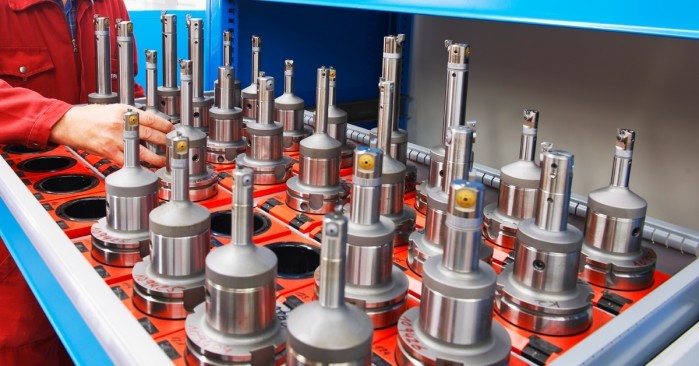
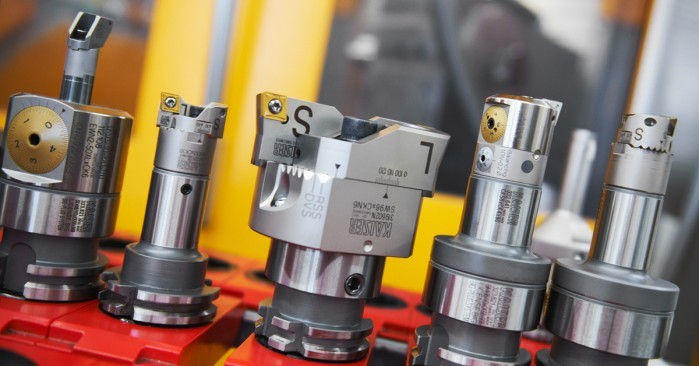
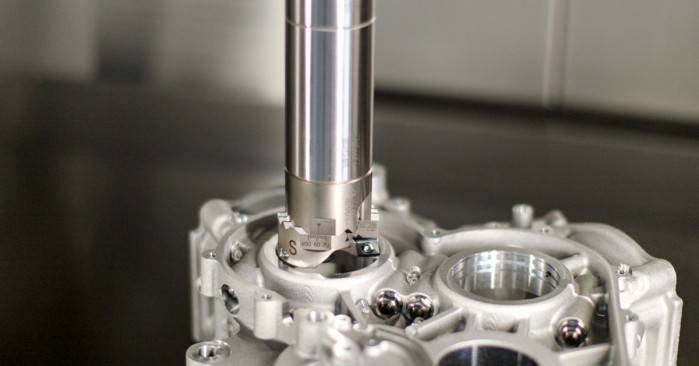
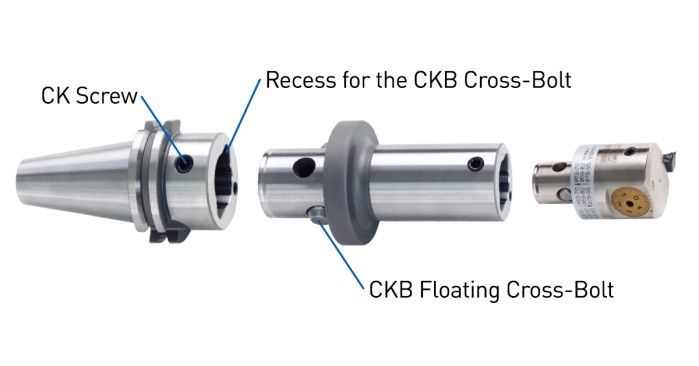
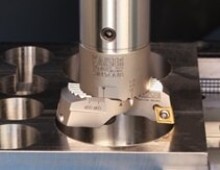
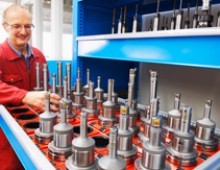
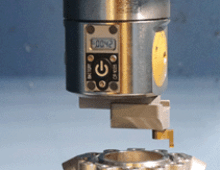
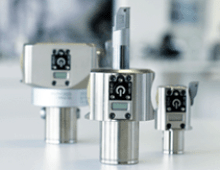
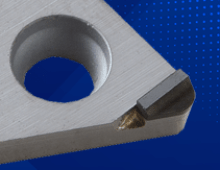
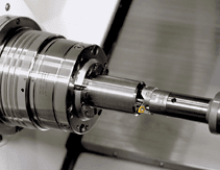
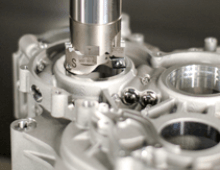
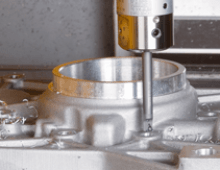
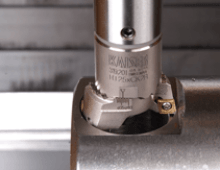
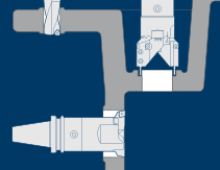
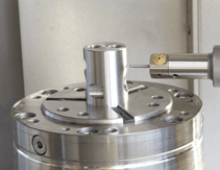
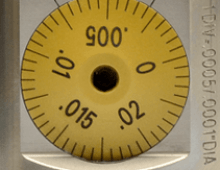
Did you find this interesting or helpful? Let us know what you think by adding your comments or questions below.